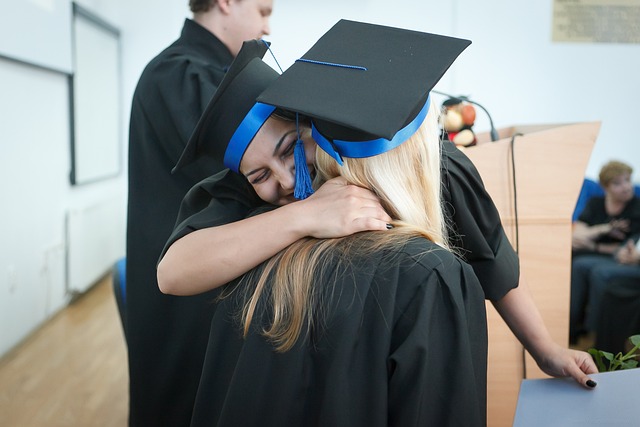Remembering Graduation
BALTIMORE – As we enter this season of graduation, it occurs to me that I played hooky from one of my own. When they held commencement at the University of Maryland, in College Park, about 45 years ago, I didn’t bother to show up.
My parents weren’t thrilled over this decision, but they seemed to understand. There would be maybe 5,000 graduates. The roll call alone would go on for an interminable length. And where would my parents find their eldest son under a sea of all those graduates’ identical mortarboards?
But I’ve made up for a single graduation absence by showing up for more than a dozen others – glad occasions where various schools, high school, and college, invited me to be their commencement speaker, in that extended era when I was writing nightly TV commentaries and thrice-weekly newspaper columns.
I never found myself surrounded by so much unrehearsed joy.
There was a night at Mergenthaler Vocational Technical High School, where a girl named Ronda Alston walked among rows of her seated classmates and sang, “Tonight,” from “West Side Story.”
“There’s a time for us,/
Some day a time for us./
Hold my hand/
And we’re halfway there./
Hold my hand/
And I’ll take you there.”
And a glorious, unrehearsed thing began to happen. A boy reached out to hold Ronda’s hand, and then a girl two seats down did the same. And then more hands reached out from all the rows of Ronda’s classmates, scores of them extending through the air, reaching for a hand to hold one last time before everyone had to go their separate ways.
Graduations are a time of great happiness and great poignancy. We finally get that piece of paper saying we’re adults now, we’ve passed all our tests and put classroom drudgery behind us.
But, inevitably, we’re leaving old friends behind. We’ve sat in classrooms every day for years, learning each other backgrounds and behavior like a mantra. And now, as we enter the American diaspora, the old friendships are snatched away.
The parents go through their own jumble of feelings. There’s the moment’s pride in the kids, but also anxiety: Did they really absorb all the life lessons they’ll need to get through the next several decades?
At Centennial High one year, I watched a graduate named Dori Spittel slowly hobble her way across the podium on metal crutches. She was born with neuromuscular problems. It took her three hours to accomplish what other youngsters might finish in an hour.
She delivered the school’s graduation address. She made no mention of her troubles. She stood there for 10 minutes, no notes in front of her, and held everybody spellbound as she talked of the closeness of her schoolmates and her hopes for the future.
One year at Joppatowne High’s graduation, seniors in the school chorus rose to sing “Love in Any Language.” The song was powerful to hear – and to watch. As they sang the words, they simultaneously held out their hands to speak in sign language.
What often struck me at these graduations was the mix of emotions on the faces of the kids. Behind the triumphant surface expressions, there were variations of the questions going through their parents’ minds: Were they really grown up enough to challenge the world now? Or was all of this a bluff, and the future’s blank slate more intimidating than they wanted to admit out loud?
Then there was a night at Our Lady of Pompei. There were maybe two dozen graduates on stage, and each of them took a rose from a flower box, and they walked out into the audience to search for their parents.
And they gave each of them a rose. Only it wasn’t just a rose they were giving. There were embraces that started out awkwardly but then didn’t stop. And there were muffled sobs, and people hugging in threes and fours, and some dabbed at their eyes with handkerchiefs.
Never mind all the arguments across the years of adolescence. Never mind all the lectures, never mind all the back-talk. They’d made it to the finish line, and now they were acknowledging each other’s help without having to say a word.

Michael Olesker, columnist for the News American, Baltimore Sun, and Baltimore Examiner has spent a quarter of a century writing about the city he loves.He is the author of several books, including Michael Olesker’s Baltimore: If You Live Here, You’re Home, Journeys to the Heart of Baltimore, and The Colts’ Baltimore: A City and Its Love Affair in the 1950s, all published by Johns Hopkins Press.

